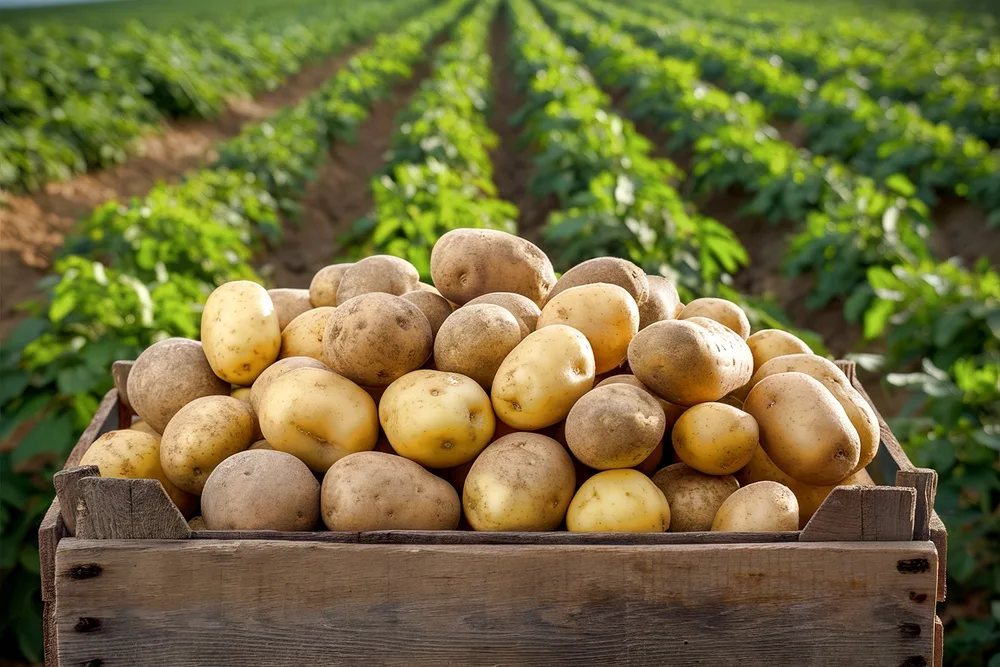Potatoes might not always be the latest trend, but they’re reliable. They’re comforting, adaptable, and always a hit.
This root vegetable has a long shelf life, which can be extended with proper storage. The trick is to keep them in a cool, dry place, such as a pantry cabinet, in a paper bag or cardboard box.
It’s crucial to avoid storing potatoes in the fridge as it can cause them to turn green, develop soft spots, or sprout prematurely.
When these signs appear, potatoes are past their prime. Let’s explore what causes potatoes to ripen and how to store them long-term.
The Science Behind Potatoes

Although potatoes are harvested, they continue to “breathe” and, in a sense, live on your shelves. Oxygen combines with sugars in potatoes, converting them into carbon dioxide and water.
Keeping potatoes in a cool, dark place slows this process, prevents sprouting, and helps maintain their sweetness.
Avoid storing potatoes and onions together, even though they’re often used in the same recipes. Both have high moisture content, which can speed up spoilage.
They also produce ethylene gas, which accelerates ripening. Instead, store them separately in a well-ventilated area to extend their shelf life.
How To Store Potatoes
While potatoes shouldn’t be refrigerated, they last longest in a cool, dark place—ideally at around 50°F and 90-95% humidity, like a root cellar. But since not everyone has a root cellar, here are four storage tips for keeping your potatoes fresh:
1. Keep Them Out Of Sunlight
Avoid storing potatoes on the countertop. Place them in a drawer, basket, closet, paper bag, or bamboo steamer—anywhere dark—to keep them fresh for 1-2 weeks.
Clear plastic bags are not ideal for storage because exposure to sunlight causes potatoes to turn green and rot. Please keep them in a visible but dark part of your pantry to avoid forgetting about them.
2. Ensure Airflow
To prevent dampness, store potatoes in a paper or mesh bag or a well-ventilated container. If using a plastic bag, ensure it’s perforated and not tightly sealed.
4. Separate From Onions
Don’t store potatoes and onions together. Their combined moisture and ethylene gas production can cause potatoes to sprout faster. Store them separately to maintain freshness.
5. Avoid Warm Spots
Even without an excellent storage spot, avoid the warmest places in your kitchen: near the oven, under the sink, or on top of the fridge.
Warm temperatures cause sprouting, while refrigeration turns starch into sugar, making potatoes taste sweeter and turn brown when cooked.
Signs Potatoes Have Gone Bad
Check for mold, black spots, and soft spots. Dr. Benjamin Chapman from North Carolina State University advises against eating wrinkled, soft, or shriveled potatoes.
While not harmful, their taste and texture won’t be appealing. Green potatoes indicate too much light exposure, which can cause bitterness and digestive irritation.
Now that you know how to store potatoes, explore some of our favorite recipes below.
